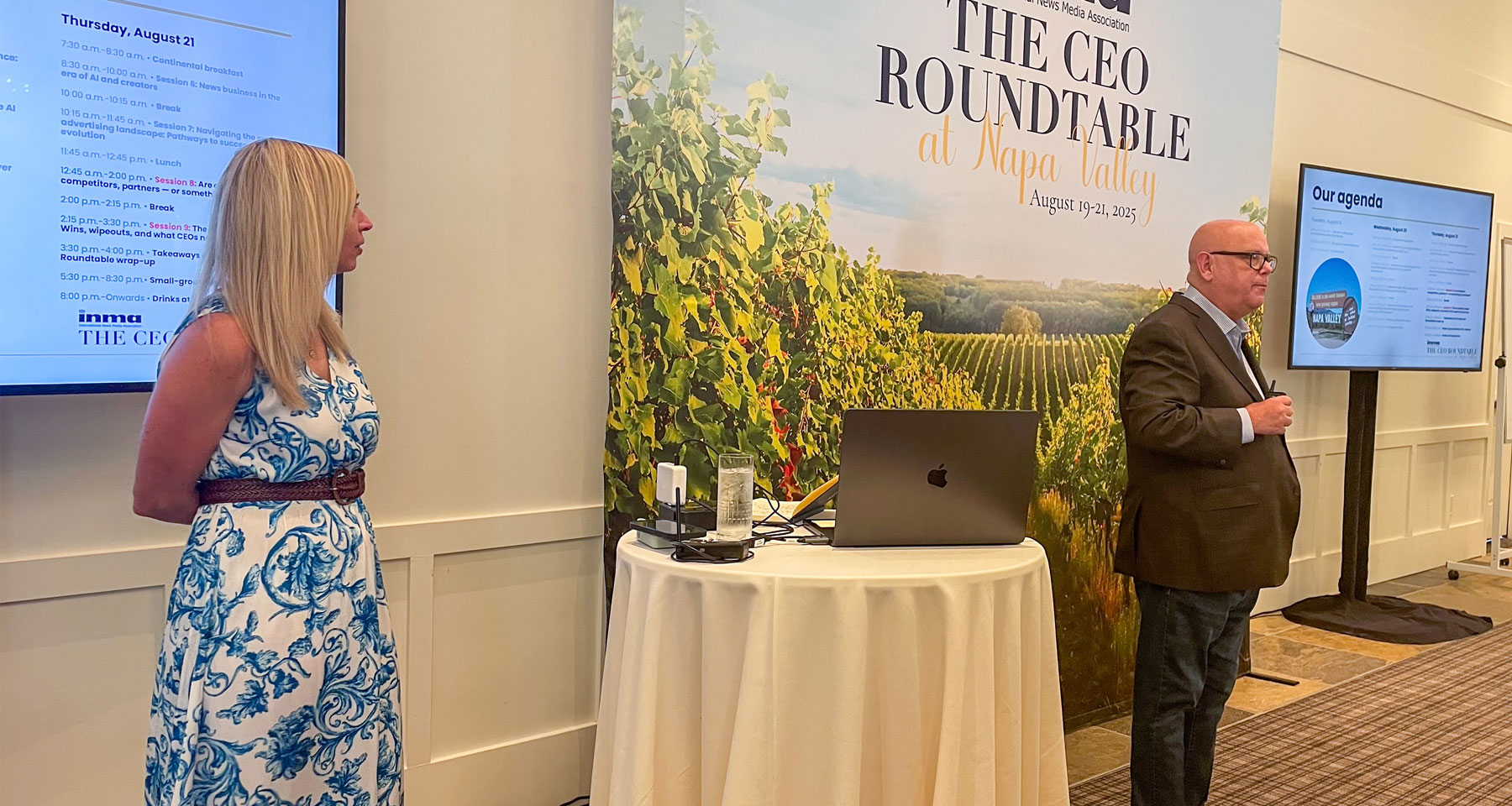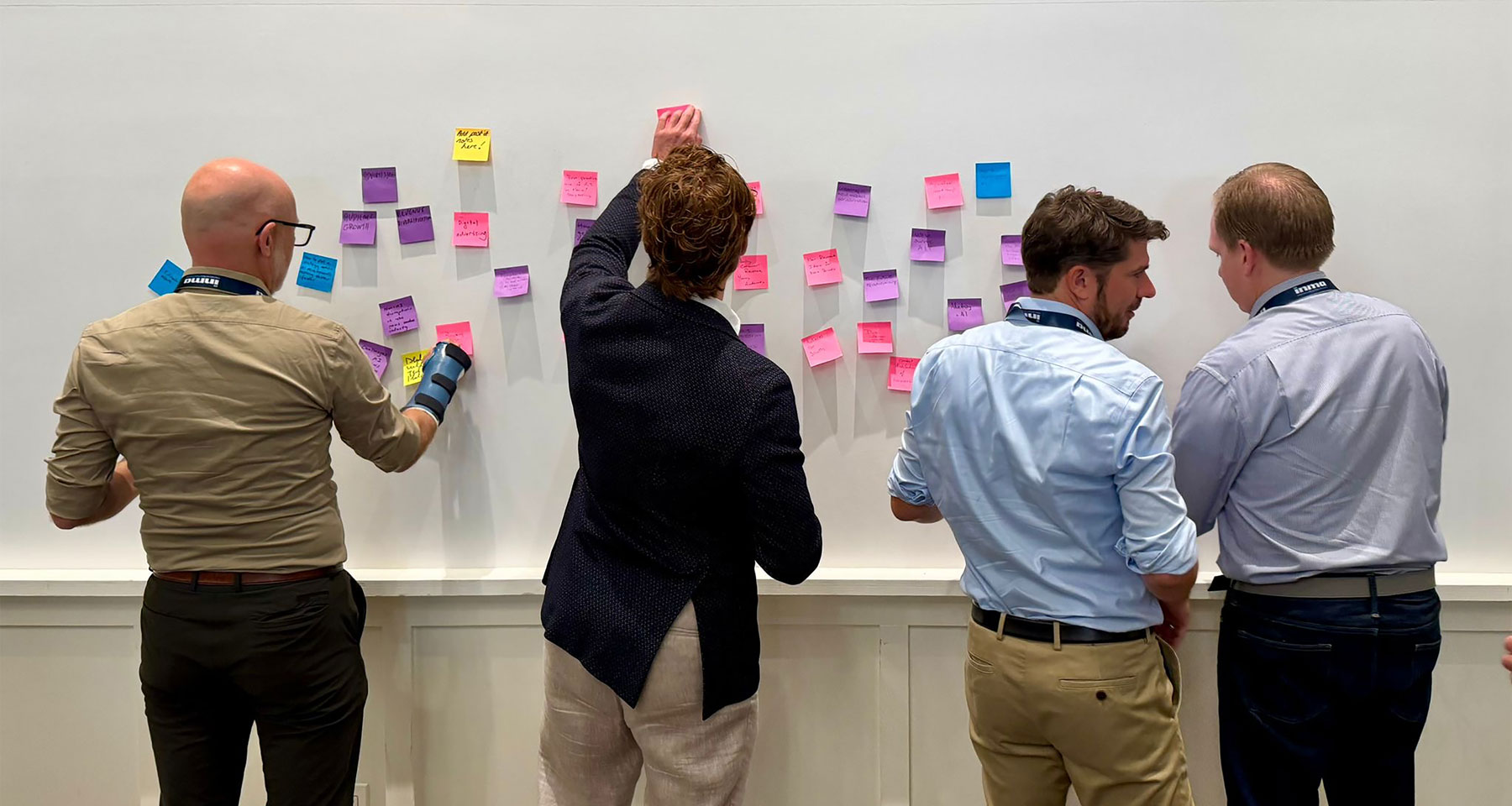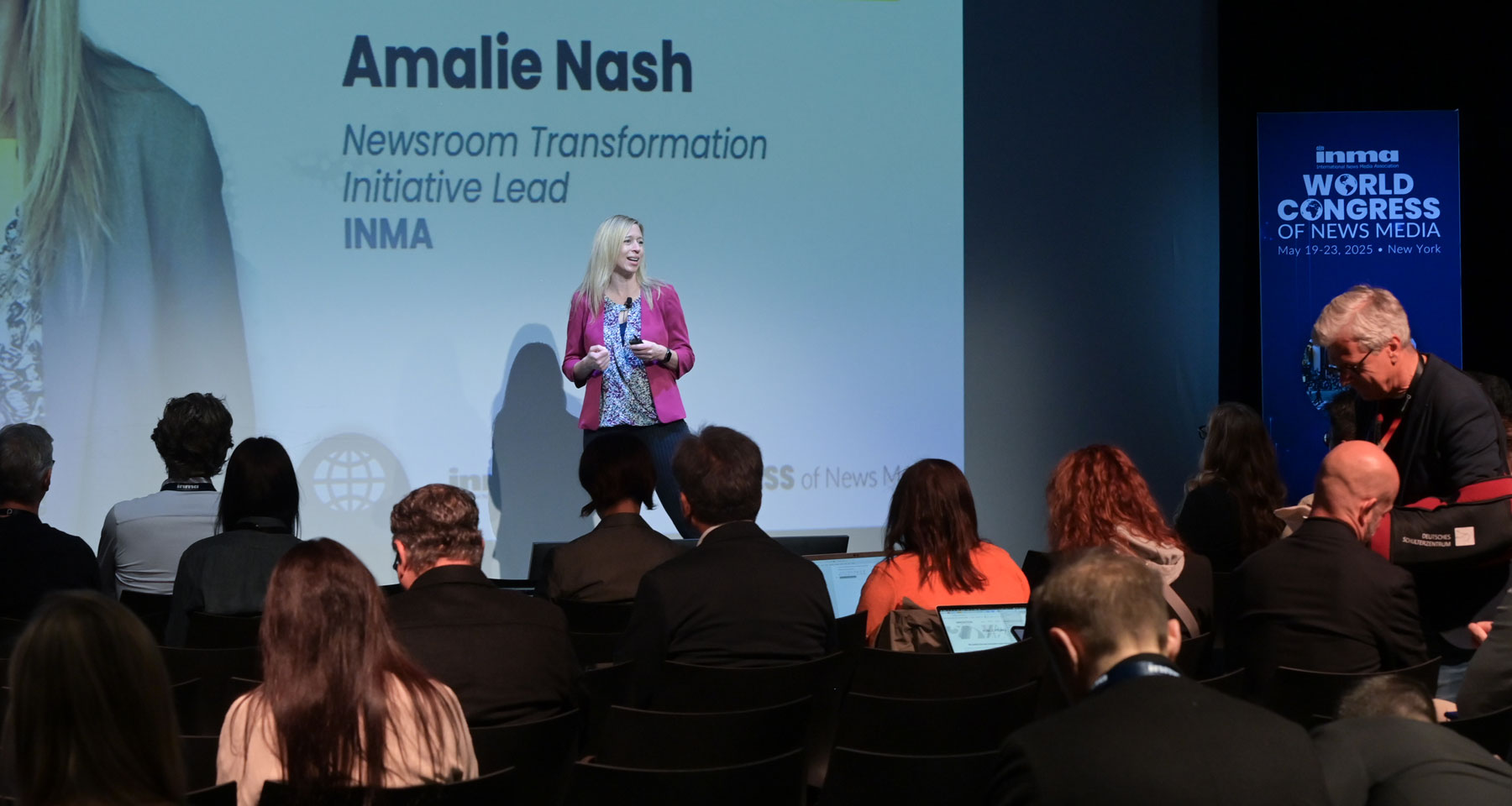African newsrooms redefine growth through community, culture
Conference Blog | 11 September 2025
The recent INMA Africa Product & Tech Summit showcased a compelling mix of case studies from across the continent, offering insights into how African media organisations are navigating digital transformation.
While the stories varied in focus — from audience engagement to workflow efficiency, from revenue models to cultural change — they shared a common thread: Success requires aligning technology, strategy, and culture with the values of journalism and the expectations of audiences.
The summit underscored that digital transformation in African media is not merely about adopting the latest technologies. It is a multifaceted process that requires aligning culture, audience relationships, business models, and editorial integrity.
Daily Maverick showed the power of communities built on shared values. BusinessDay demonstrated the value of premium, niche subscriptions. Premium Times highlighted how workflow tools can improve efficiency without displacing human judgement. An independent television host illustrated how even individuals can monetise effectively by going direct to audiences.
The cultural struggle
Several speakers noted that the most significant challenge facing African newsrooms is not technology but culture. Resistance to change, entrenched hierarchies, and lack of trust between departments frequently undermine innovation efforts.
“We have this ingrained mindset, a traditional way of thinking that this is how it’s supposed to be; this is how we’ve always done it,” Carole J. Kimutai, head of editorial and visual storytelling at Burson Africa, told attendees. “Yet when you look at the numbers, we are seeing a declining revenue stream and a declining audience. So we actually are suffering because it means we are not making decisions the way they need to be done.”
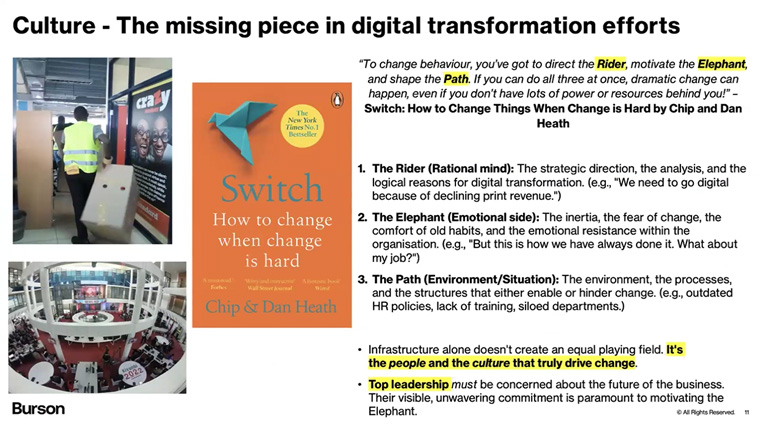
Culture is the most significant “disease” in newsrooms and the missing piece in digital transformation, Kimutai said.
Transformation requires more than new tools or processes; it demands a shift in mindset. Editorial, product, technology, and audience teams must collaborate openly, with space for experimentation and tolerance of failure.
Newsrooms that create cultures of ownership and learning are the ones most likely to sustain change.
This insight reframes transformation as primarily a human issue, not a technical one. Investment in leadership, clarity of roles, and collaborative habits is as critical as investment in digital tools.
BusinessDay Premium makes a high-end subscription offer
Nearing its 25th anniversary, Nigeria’s BusinessDay Premium decided not just to look back but to move forward more boldly. In a crowded marketplace, BusinessDay identified an underserved niche — executives, policymakers, investors — people who want far more than headlines: they want context, foresight, actionable insights.
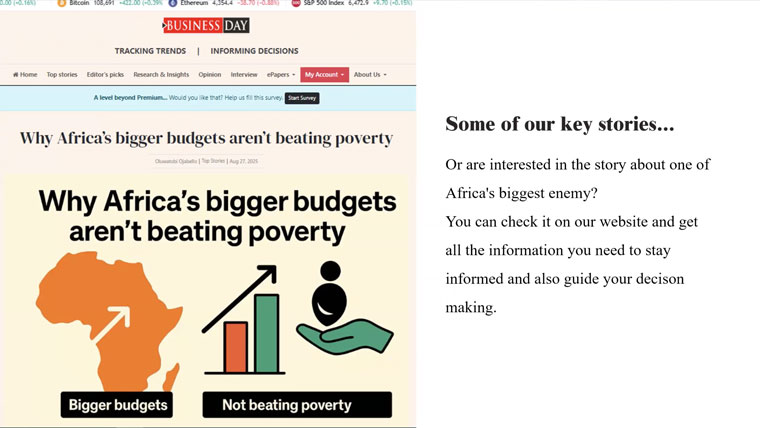
The news company built its premium subscription offer around four key pillars. These pillars didn’t revolve around flashy UX or bells and whistles so much as utility, exclusivity, and timing. If you have the right content, for the right people, delivered in the right way, you can build something people are willing to pay for.
Another insight: Digital distribution matters — mobile, app, website — but it must be underpinned by trust, credibility, and relevance.
Daily Maverick Connect builds community grounded in values
Alet Law, head of audience development at Daily Maverick, took to the stage with a story about Daily Maverick Connect — a platform built to bring Maverick readers and journalists into real, meaningful dialogue.
Maverick Insiders, as the financially committed members are called, can move beyond reading journalism to participating in it: suggesting ideas, helping fact-check, engaging in discussions, network with one another. This isn’t just about paying; it’s about belonging.
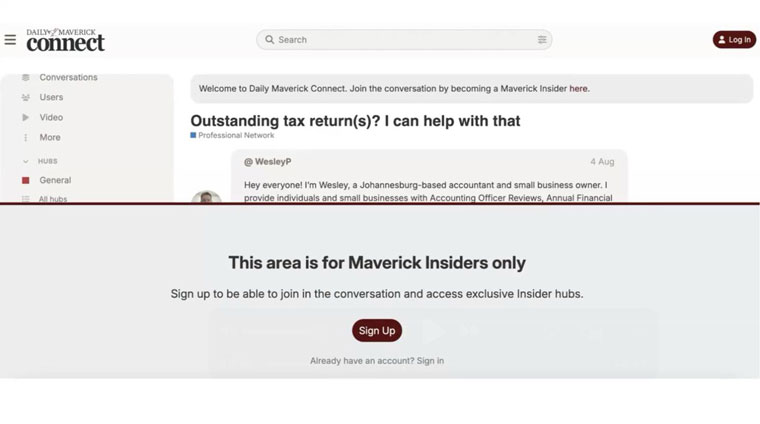
What emerged from this case was how critical it is to design community spaces that mirror the values of a news organisation. It needed to feel less like another social network and more like an extension of the organisation’s mission: independent journalism, shared values, trust.
The hybrid model — some areas free, others exclusive — helped balance accessibility with value. AI was introduced, but minimally, to moderate toxic content or summarise conversations, not to dominate. The lesson: Community matters, but community with purpose and guardrails matters more.
Independent TV host pivots to Vimeo subscription model
An independent TV host case highlighted how content creators are taking control by pivoting their distribution models. Rather than rely on broad broadcast or ad-driven channels, this host moved to a subscription model via Vimeo.
The insight here is that niche, dedicated audiences will pay — especially when promised content not otherwise available. By owning more of the connection between creator and audience, you retain control, margin, and brand.
Premium Times uses Google Notebook LM to streamline podcast workflow
Another case was Premium Times, which adopted Google’s Notebook LM to streamline newsroom processes, specifically with audio products. Journalists often juggle mountains of information — source documents, transcripts, reports.
Notebook LM helps organise those materials, summarise complex texts, synthesise research efficiently. The tool doesn’t replace the journalist; rather, it frees them to use their time and insight more strategically.
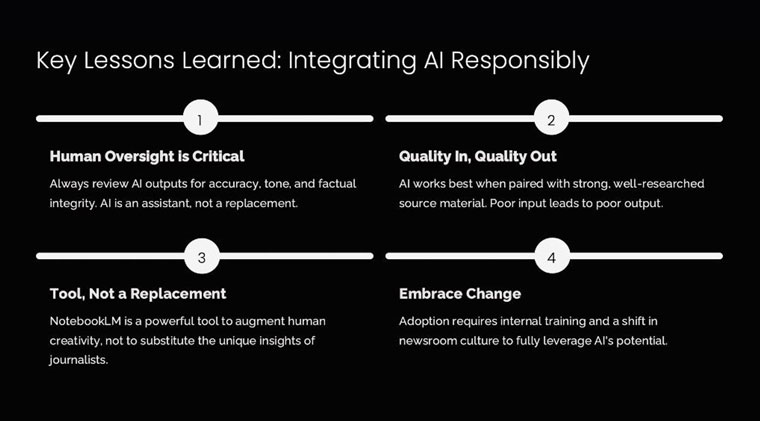
This underscores a broader insight: as much as content and business models matter, so do internal efficiency and workflows. In resource-constrained newsrooms, tools like this can be powerful enablers — but only if the culture supports their adoption and if staff are trained, involved, and trust that technology aids, not replaces, their work. Human-in-the-loop remains essential.




